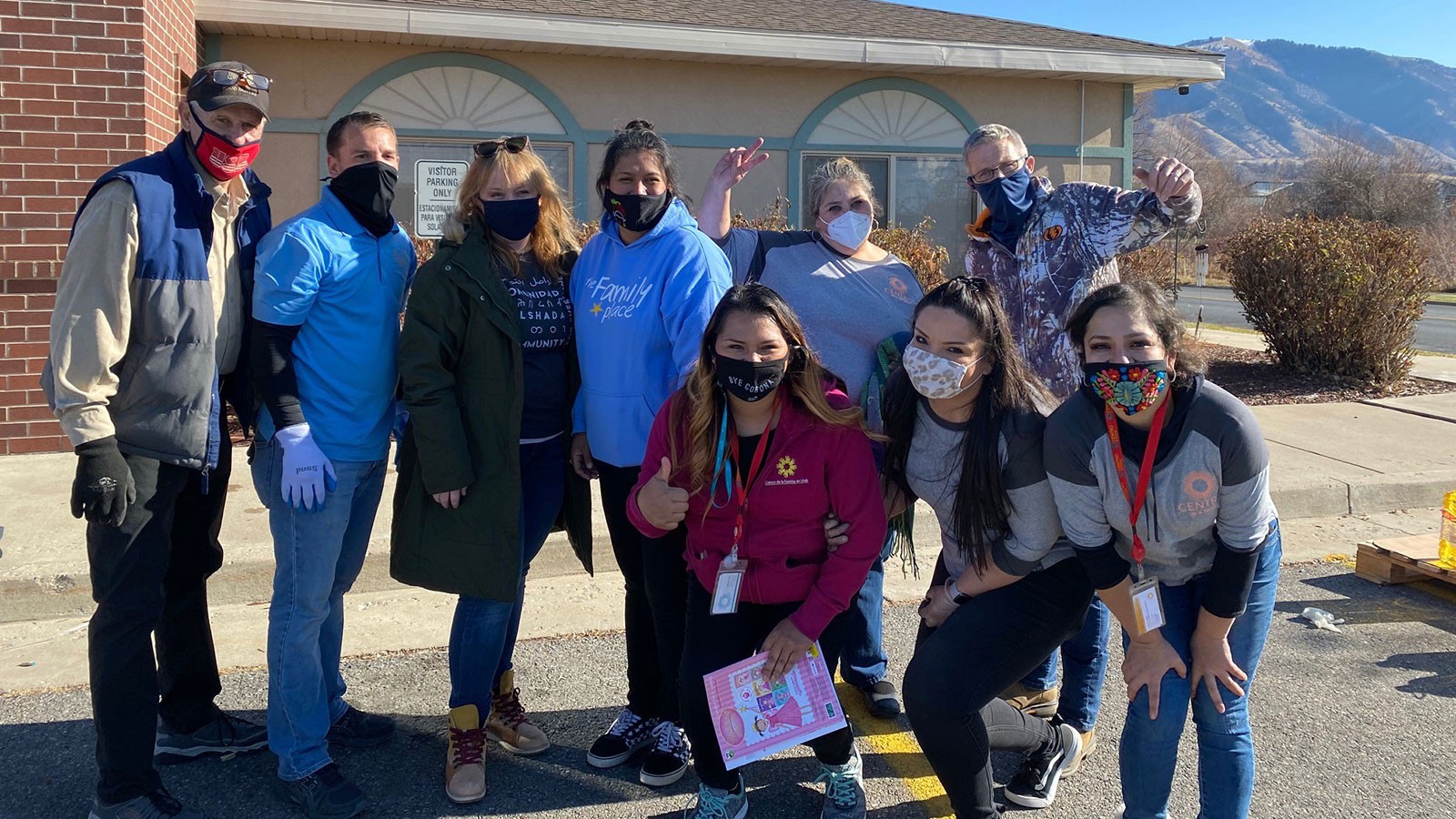Cache Valley Extension Helped Distribute More Than Eight Tons of Food
The Cache Community Food Pantry, Cache Refugee and Immigrant Connection (CRIC) together with Utah State University’s Cache County Extension successfully teamed up to write a COVID-19 grant proposal that awarded funds to bring food relief and nutrition education to culturally diverse communities settled in the area. The aim of this racial equity grant from Utah’s Division of Multicultural Affairs is unique in that it provides funds to distribute culturally appropriate food to Latinos, immigrant and refugees from various cultural backgrounds.
A total of 8.8 tons of fresh food and staples were distributed to more than 300 local families on November 21 at Centro de La Familia. Other organizations like Little Lambs Foundation, the Family Place and USU’s Hunger Solutions Institute, pitched in with diapers, formula, cookies and reusable grocery bags. In addition, USU Extension also provided face masks and educational information on food safety and COVID-19 prevention. Local ethnic stores joined in these activities by procuring and delivering the food to the organizers.
Celina Wille, Extension Latino programs specialist and associate director of USU’s Latinx Cultural Center, worked closely with organization leaders, community supporters and volunteers to coordinate these efforts.
“I am very impressed with the response from our Latino store owners,” Wille said. “They felt very strongly this was an important cause and did not hesitate to help when we approached them. Involving them not only helped us get the right food to the event participants but also helped us keep the grant funds spent locally.”
Another similar event is planned for Dec. 19. Extension and partners are already preparing to involve more grocers, including some providing Halal products and other specialty food items. USU Extension marketing team members have also assisted with graphic design making the educational messages visually appealing and available in other languages such as Somali, Tigrinya, Arabic and Karen.
“We hope these efforts will lessen concerns and increase trust among these vulnerable populations to feel free to access our food pantry not only during the pandemic, but in other difficult times in the future,” Wille added. “We hope they know this is a community resource that is open and welcome to all, regardless of background.”
CONTACT
Celina Wille
Associate Professor and Latino Program Specialist, Associate Director
Extension, Latinx Cultural Center
(435) 752-6263
celina.wille@usu.edu
TOPICS
Extension 450stories Community 444stories Utah 371stories Food 167stories Engagement 95storiesComments and questions regarding this article may be directed to the contact person listed on this page.







